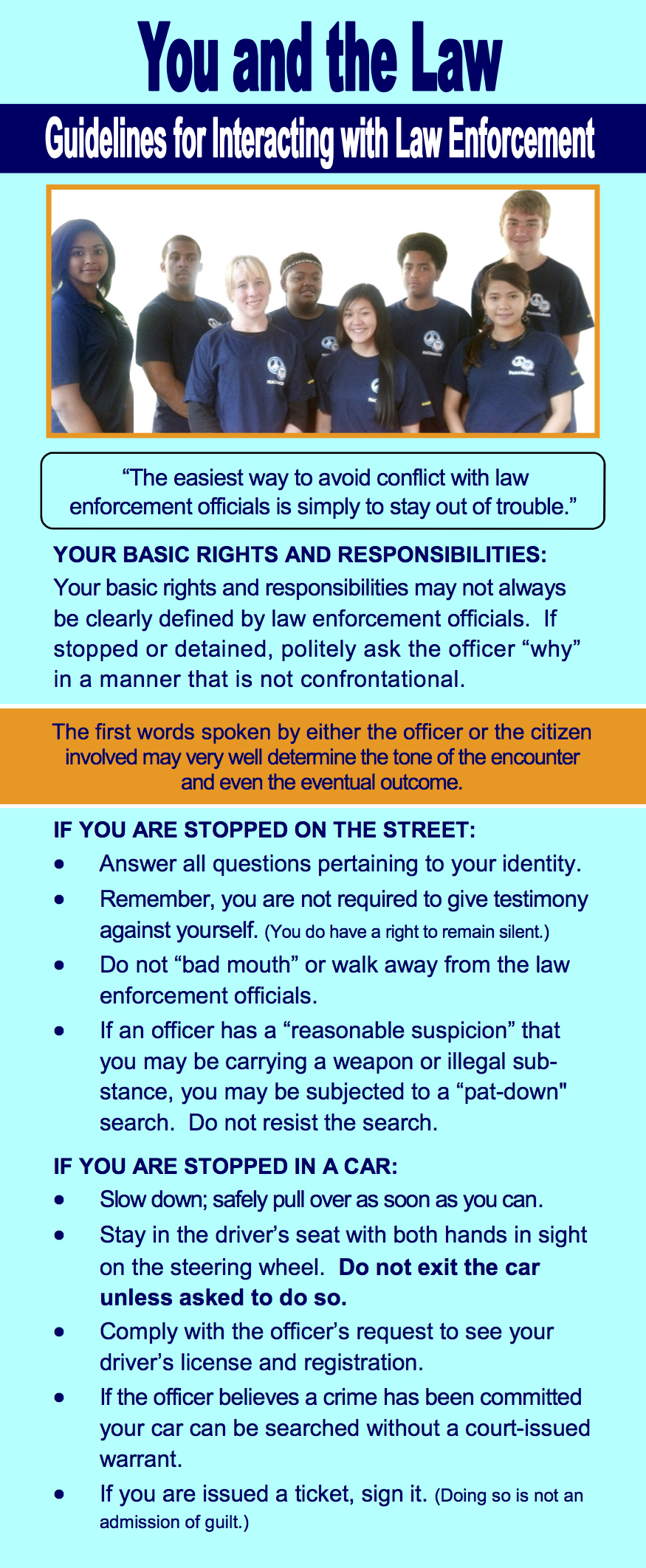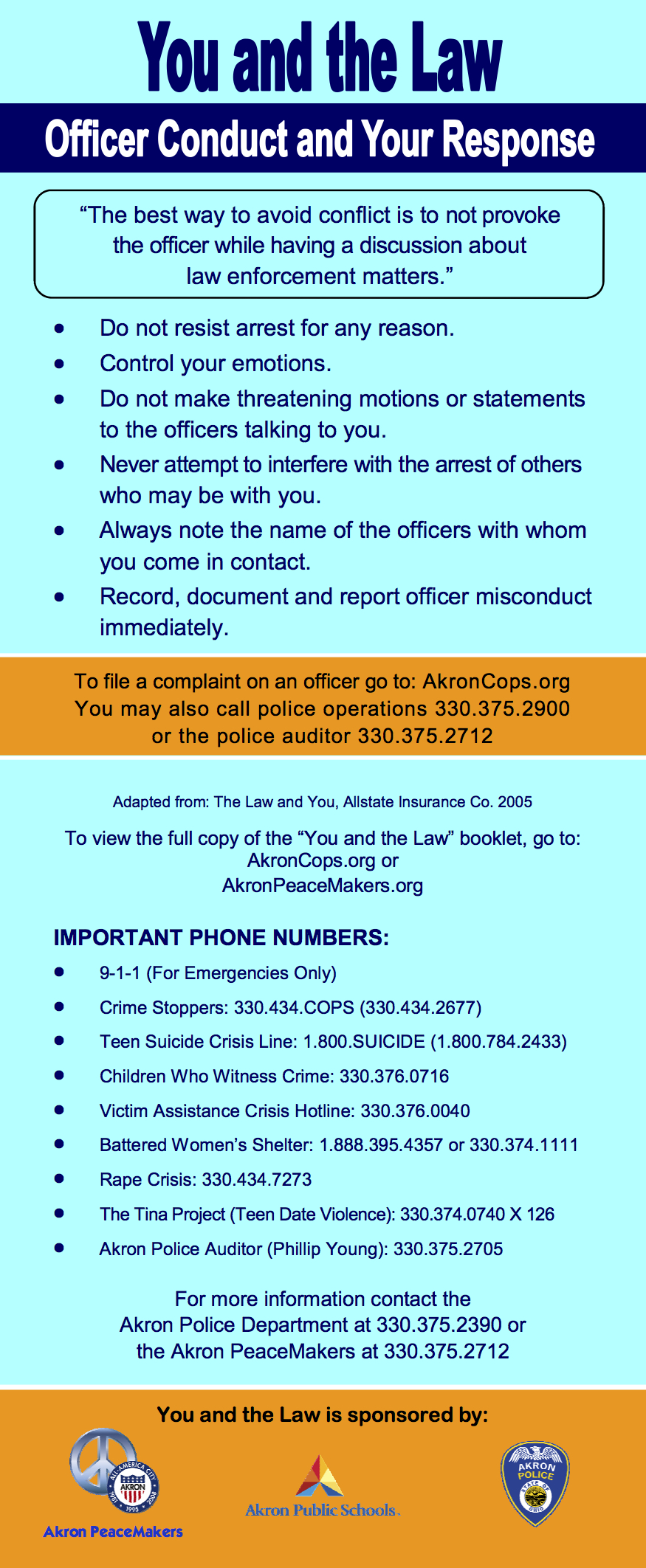This Student Group's Police Interaction Fact Sheet Doesn't Tell the Whole Story
By:
An anti-violence youth group and the police of Akron, Ohio, are teaming up to try and curb scuffles between police and high school kids by passing out cards that educate students about their rights in a law enforcement altercation. And while there is a lot of good to be gained from the cards, they leave out instances when the police are the transgressors. And what, pray tell, are our young people supposed to do then?
But first, let's focus on the positives (mostly because isn't it grand when we can all manage to work together?): namely the fact that the initiative gives young people more tools than they may have had before, empowering them in their interactions with public safety officials. And the whole thing was executed not by parents or school officials, but proactive kids themselves in the Akron PeaceMakers youth group, working with police officers in the area in order to target the key impetuses that can (and frequently do) cause the escalation of tense situations.


Ultimately, the card was created with good intentions and motives: it's a gateway to building trust, claim officers and members of the PeaceMakers alike — a welcome addition to the community in the wake of the shooting of 12-year-old boy Tamir Rice on a playground in nearby Cleveland in November 2014. And certainly, the more knowledge and confidence we can give people in matters of law enforcement, the better the community itself operates.
That said, the pamphlet itself is far from perfect, taking no consideration whatsoever of the fact that civilians should be sure to assert their constitutional rights. Take, for example, this crib sheet compared to one prepared by the American Civil Liberties Union, which is — by and large — a very similar iteration of rules. In the Akron version, students are reminded that they must submit to pat-downs and/or vehicle searches when police have reasonable suspicion. The ACLU, however, not only discusses when an officer can conduct these searches, but it also states that you should refuse — but not physically resist — a search when you don't believe an officer has reasonable suspicion. Indeed, "if you do consent, it can affect you later in court," the ACLU reminds us. The Ohio crib sheet never mentions the potential negative ramifications of giving consent to a potentially illegal search.
If cops want to rebuild trust in America, an open dialog in the moment, between office and citizen, should be an integral part of the law enforcement experience. And if that can be achieved, it'll help alleviate stresses caused by slippery slope scenarios. After all — as the Akon document posits — “the best way to avoid conflict is to not provoke the officer while having a discussion about law enforcement matters.” But when so much of what is defined as circumstantial ultimately pits the people involved against one another (naturally giving rise to distrust and anxiety, because he-said-she-said-he-said matters are no one's friend), the way to do that is by keeping the discussion civil, polite, and honest. That can only happen when that onus is everyone's responsibility: meaning you must understand what and why the cop is performing their search and politely expressing your views in response.
Needless to say, this proves one point: an honest, hard discussion about our what constitutes a reasonable encounter between police and civilians is necessary in this country right now. Bridging the tense divide between police and the public is a huge concern, particularly as a way to rebuild the relationship between those tasked with protecting and serving the American people. Ultimately, this is a discussion that includes a lot of nuance, many sides, and a heck of a lot of introspection when it comes to personal prejudices and discrimination and how certain systems have been set up to institutionalize the more negative of these. But it'll be worth it, don't you agree?
